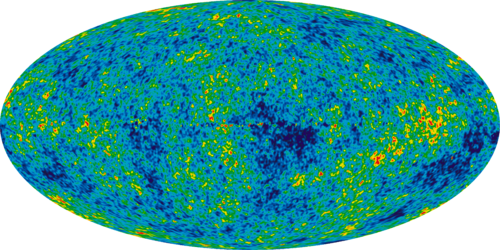BBN
Big Bang nucleosynthesis

Big Bang nucleosynthesis
Process during the early phases of the Universe
In physical cosmology, Big Bang nucleosynthesis is the production of nuclei other than those of the lightest isotope of hydrogen during the early phases of the Universe. Primordial nucleosynthesis is believed by most cosmologists to have taken place in the interval from roughly 10 seconds to 20 minutes after the Big Bang, and is calculated to be responsible for the formation of most of the universe's helium as the isotope helium-4 (4He), along with small amounts of the hydrogen isotope deuterium, the helium isotope helium-3 (3He), and a very small amount of the lithium isotope lithium-7 (7Li). In addition to these stable nuclei, two unstable or radioactive isotopes were also produced: the heavy hydrogen isotope tritium ; and the beryllium isotope beryllium-7 (7Be); but these unstable isotopes later decayed into 3He and 7Li, respectively, as above.
Read on Wikipedia License Image-Source